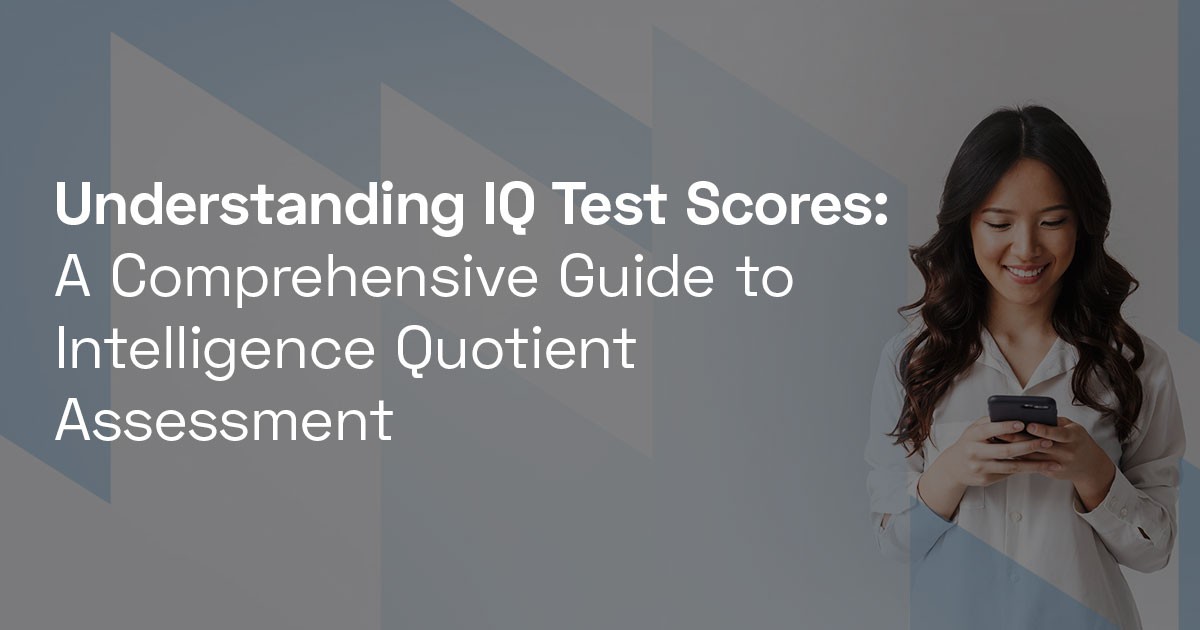
Understanding IQ Test Scores: A Comprehensive Guide to Intelligence Quotient Assessment
Introduction to IQ Test Scores
Intelligence Quotient (IQ) tests are widely used psychological assessments that measure an individual's cognitive abilities. These tests are designed to assess various aspects of intelligence, including logical reasoning, problem-solving, verbal comprehension, and more. In this comprehensive guide, we will explore how IQ test scores are calculated, the different types of IQ tests, and what these scores signify.
What is an IQ Test?
An IQ test is a standardized assessment that evaluates an individual's cognitive abilities and intellectual potential. It is commonly used in educational, clinical, and occupational settings to assess intelligence and cognitive skills.
Types of IQ Tests
There are several types of IQ tests, each with its unique set of questions and scoring methods. Some of the most commonly used IQ tests include:
- Wechsler Adult Intelligence Scale (WAIS): Designed for adults and older adolescents, the WAIS measures verbal comprehension, perceptual reasoning, working memory, and processing speed.
- Wechsler Intelligence Scale for Children (WISC): Similar to the WAIS, the WISC is designed for children aged 6 to 16 and assesses the same cognitive domains.
- Stanford-Binet Intelligence Scale: Suitable for individuals aged 2 to 85, the Stanford-Binet test measures fluid reasoning, knowledge, quantitative reasoning, visual-spatial processing, and working memory.
- Raven's Progressive Matrices: A non-verbal test that assesses abstract reasoning and problem-solving skills using visual patterns.
How IQ Test Scores Are Calculated
IQ test scores are calculated using a statistical method called standardization. This process involves comparing an individual's performance to a representative sample of the population. The following steps outline the calculation of IQ test scores:
- Raw Score: The raw score is the total number of correct answers on the test. It represents the individual's performance without any adjustments.
- Scaled Score: The raw score is converted into a scaled score based on the test's norms. This allows for comparison with the general population.
- Standard Score: The scaled score is transformed into a standard score with a mean of 100 and a standard deviation of 15. This score represents the individual's relative standing in the population.
- Percentile Rank: The standard score is further converted into a percentile rank, indicating the percentage of people in the norm group who scored lower than the individual.
Interpreting IQ Test Scores
IQ test scores are interpreted based on standard score ranges. The following categories are commonly used to classify IQ scores:
- Below 70: Intellectual Disability
- 70-84: Below Average Intelligence
- 85-114: Average Intelligence
- 115-129: Above Average Intelligence
- 130 and above: Gifted or Highly Advanced
It is important to note that IQ test scores are not fixed and can vary based on various factors, including the individual's health, motivation, and testing conditions.
Limitations of IQ Tests
While IQ tests are valuable tools for assessing cognitive abilities, they have certain limitations:
- IQ tests do not measure all aspects of intelligence, such as creativity, emotional intelligence, and practical skills.
- Cultural and linguistic biases may affect test performance.
- IQ scores are not definitive indicators of an individual's potential or capabilities.
Diagram: Distribution of IQ Scores

The diagram above illustrates the distribution of IQ scores and their corresponding categories. The majority of individuals fall within the average intelligence range, with a smaller percentage classified as below average, above average, gifted, or having an intellectual disability.
Conclusion: The Value of IQ Assessment
IQ tests provide valuable insights into an individual's cognitive abilities and intellectual potential. Understanding how IQ test scores are calculated and interpreted is essential for making informed decisions in educational, clinical, and occupational settings. While IQ tests have limitations, they remain a widely used and reliable tool for assessing intelligence. Ultimately, IQ test scores are just one piece of the puzzle in understanding an individual's cognitive profile and should be used in conjunction with other assessments and observations.
Test your cognitive skills and see where you rank! Start IQ Test